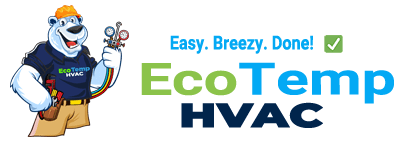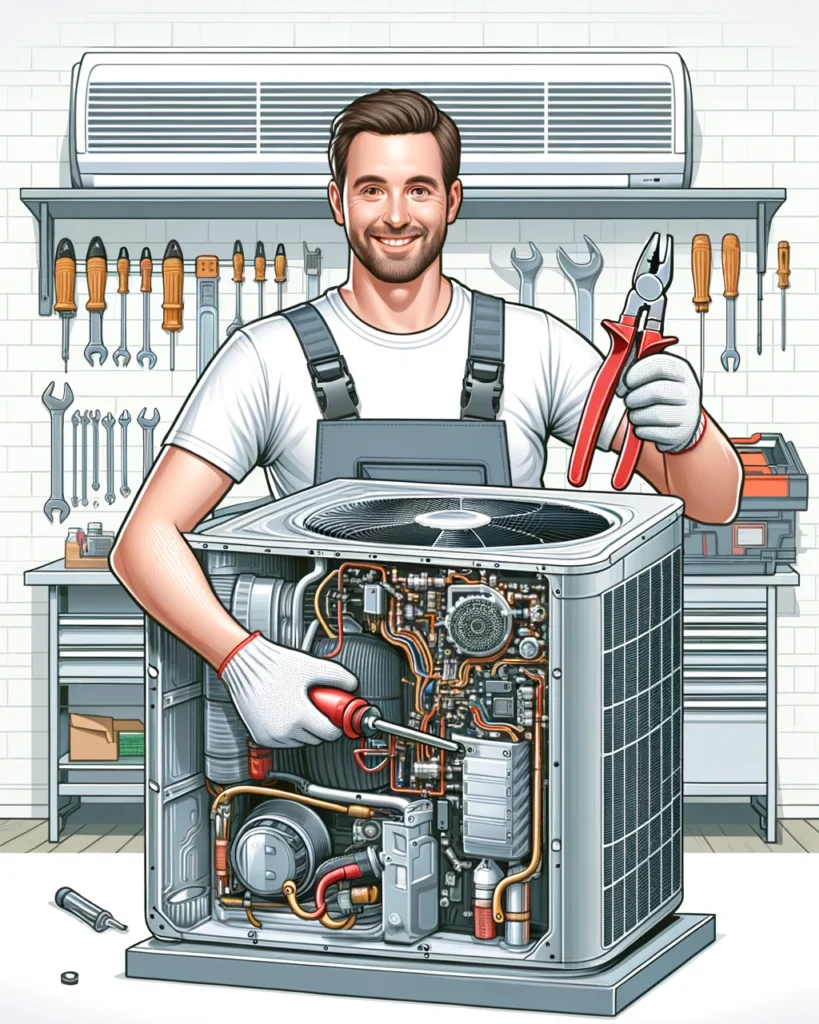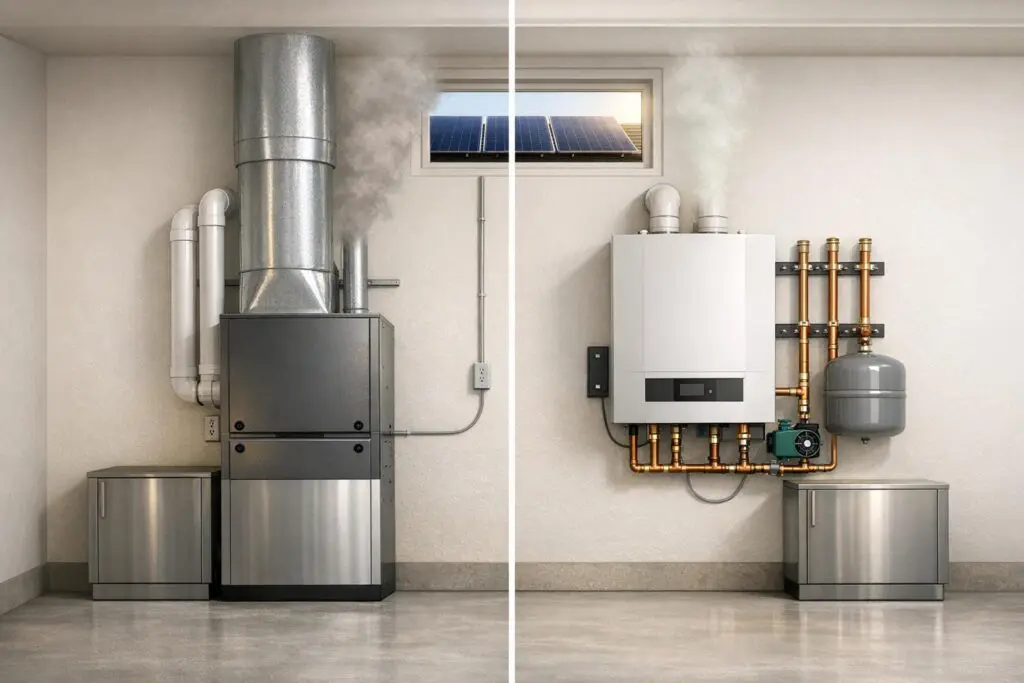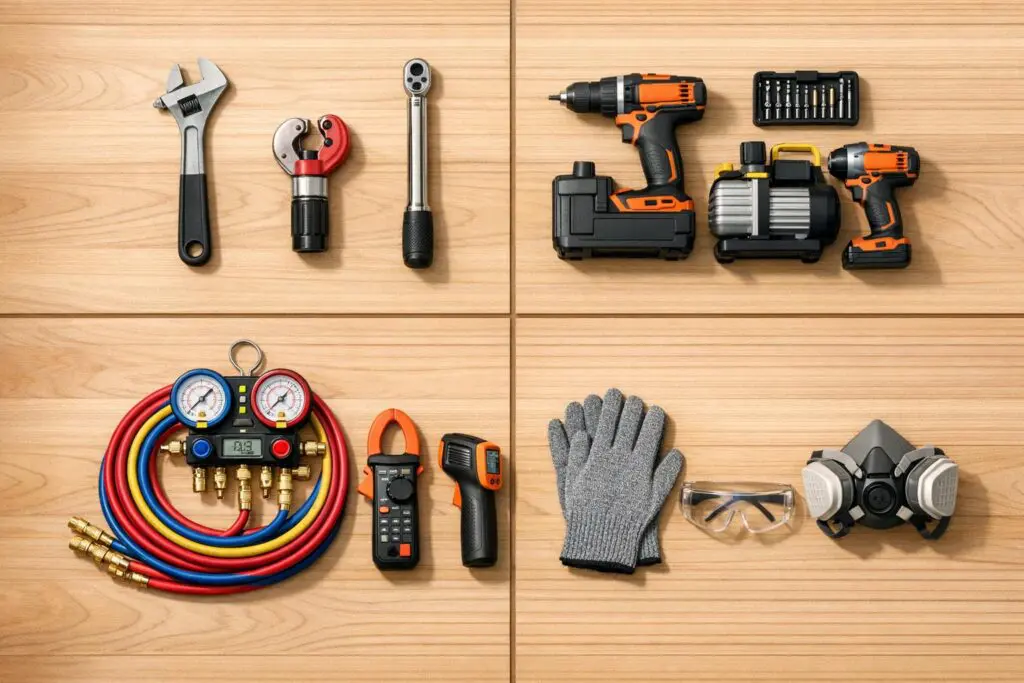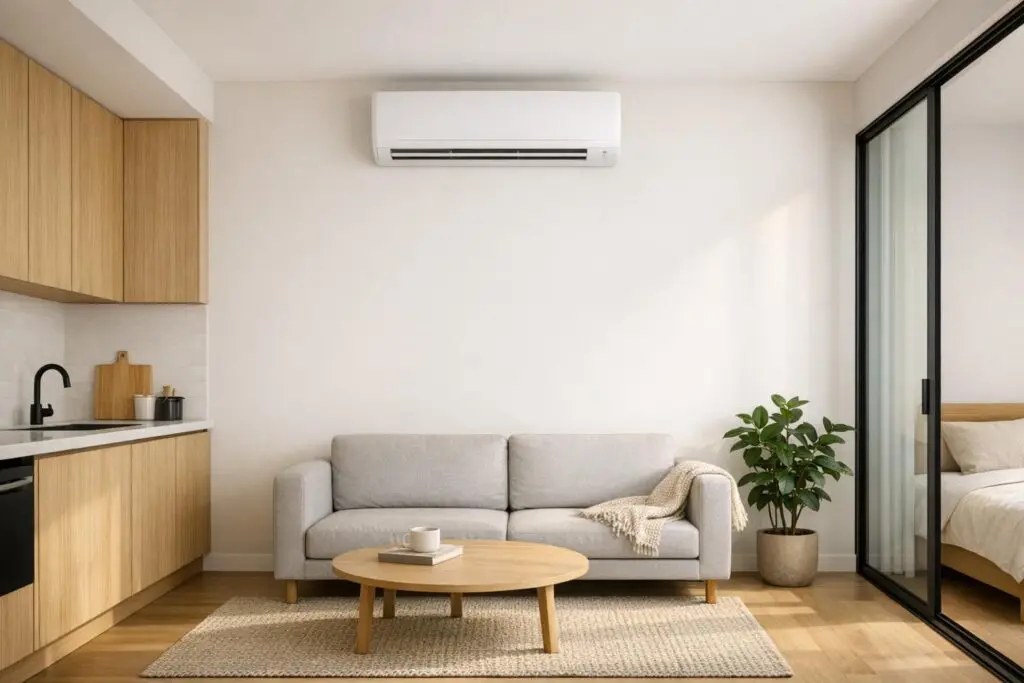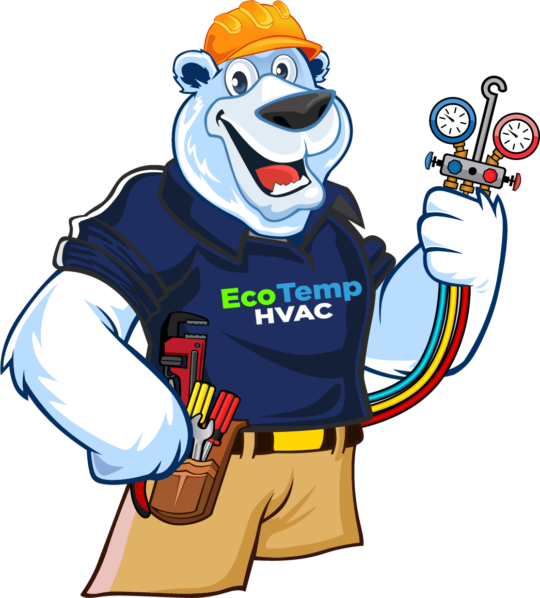Air conditioning is a vital part of our daily comfort, especially during the hot summer months.
However, like any other appliance, air conditioners can break down and require repair.
While some issues necessitate professional intervention, many common problems can be fixed with a little DIY effort. This not only saves you money but also equips you with valuable knowledge about your cooling system.
In this article, we will guide you through some practical, step-by-step DIY tips for air conditioning repair.
From identifying common issues to basic maintenance tasks, we’ll help you keep your air conditioner running smoothly.
Remember, though, that some repairs are best left to professionals, especially when dealing with complex commercial systems or urgent 24 hr repairs.
Also, in certain situations, it might not be possible to repair your ac and it might be time for a replacement.
Ac Repair vs Replacement Making the Right Choice
Safety First: Preparing for DIY Air Conditioning Repair
Before you start any DIY air conditioning repair, safety should be your top priority.
Working with electrical appliances can be dangerous if not done correctly.
Here are some safety tips to keep in mind:
- Always turn off the power to your air conditioner before starting any repair work. This can usually be done at the circuit breaker.
- Use insulated tools to protect yourself from electrical shocks.
- Wear protective gear, such as gloves and safety glasses, to protect yourself from sharp objects and dust.
- If you’re working on a roof or high place, use a sturdy ladder and have someone spot you to prevent falls.
Remember, if a repair seems too risky or complicated, it’s best to call a professional.
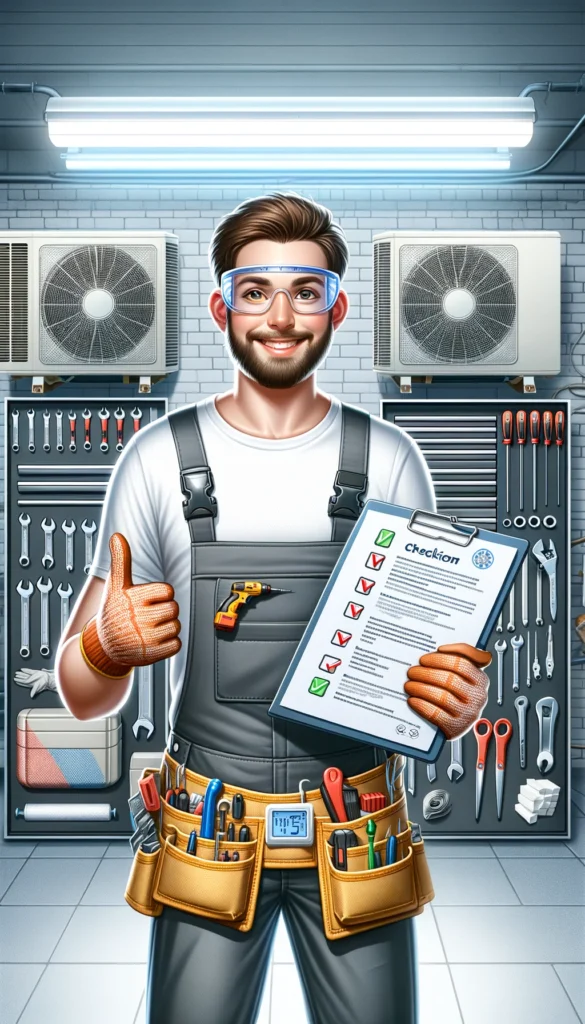
Identifying Common Air Conditioning Issues
Understanding common air conditioning issues is the first step in DIY repair.
Knowing what to look for can help you diagnose the problem quickly.
Here are some common issues you might encounter:
- Weak airflow or warm air coming from the vents
- Unusual noises or odors
- Water leaks or drainage issues
Each of these issues can have different causes and solutions.
Explore more Common HVAC Issues and Their Solutions
Weak Airflow and Warm Air Problems
Weak airflow or warm air coming from your air conditioner can indicate several issues.
It could be a problem with the air filters, coils, or even the fan motor.
Unusual Noises and Odors
Unusual noises can be a sign of mechanical issues.
If you notice a strange smell, it could indicate mold or mildew in your system.
Water Leaks and Drainage Issues
Water leaks can be caused by a clogged drain line or a leaking refrigerant.
If you notice water pooling around your air conditioner, it’s important to address it quickly to prevent further damage.
Basic Air Conditioning Maintenance
Regular maintenance is key to keeping your air conditioner running smoothly.
It can help prevent many common issues and extend the lifespan of your system.
Here are some basic maintenance tasks you can do yourself:
- Replacing or cleaning air filters
- Cleaning coils and fins
- Checking and troubleshooting the thermostat
Replacing or Cleaning Air Filters
Dirty or clogged air filters can restrict airflow and reduce your system’s efficiency.
It’s recommended to check your air filters at least once a month and replace or clean them as needed.
Cleaning Coils and Fins
The coils and fins in your air conditioner play a crucial role in the cooling process.
Over time, they can become dirty or bent, which can affect your system’s performance.
Checking and Troubleshooting the Thermostat
The thermostat controls the temperature settings for your air conditioner.
If it’s not working properly, it can cause your system to run inefficiently or not at all.
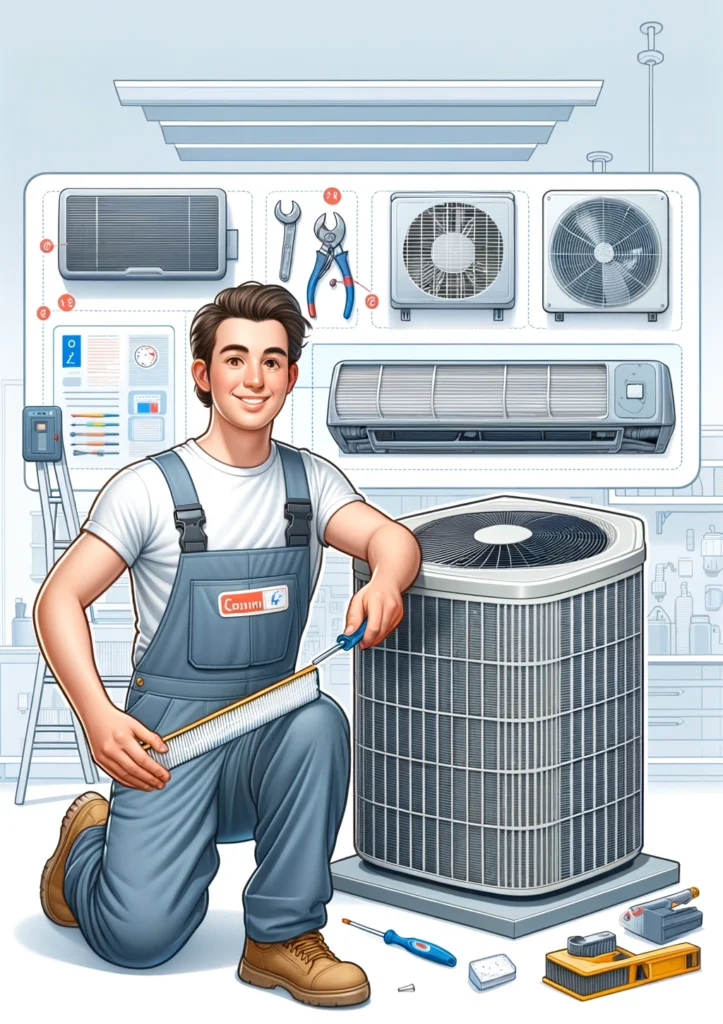
When to Call the Professionals
While DIY maintenance can solve many issues, some problems require professional help.
If your air conditioner is still not working properly after your DIY efforts, it’s time to call a professional.
Looking for an HVAC expert? Here’s How To Choose The Ideal Air Conditioning Company
Recognizing the Limits of DIY
It’s important to know your limits when it comes to DIY repairs.
Some tasks, like handling refrigerant or electrical repairs, can be dangerous and are best left to professionals.
24 hr Air Conditioning Repair and Commercial Services
For urgent issues, 24 hr air conditioning repair services are available.
Commercial properties may also require specialized services due to the size and complexity of their air conditioning systems.
Seasonal Maintenance and Efficiency Tips
Regular maintenance can help your air conditioner run more efficiently and last longer.
This includes tasks like cleaning or replacing filters, checking for leaks, and ensuring the system is properly insulated.
Here are some tips for seasonal maintenance:
- Spring: Clean or replace filters, check for leaks, and clean the outdoor unit.
- Summer: Regularly check and clean filters, and ensure the outdoor unit is free of debris.
- Fall: Clean or replace filters, cover the outdoor unit if necessary.
- Winter: Ensure the system is properly insulated, and consider a professional inspection.
Preparing Your AC for Extreme Weather
Extreme weather conditions can put a strain on your air conditioning system.
Before a heatwave, ensure your system is clean, well-maintained, and free of leaks.
Energy Efficiency and SEER Ratings
Energy efficiency is a key factor in air conditioning performance.
The Seasonal Energy Efficiency Ratio (SEER) rating of an air conditioner can give you an idea of its efficiency. Higher SEER ratings indicate more efficient units.
Conclusion: The Benefits of DIY Air Conditioning Repair
Taking on DIY air conditioning repair can save you money and improve your system’s efficiency.
However, always remember to prioritize safety and know when to call in the AC repair professionals at Eco Temp HVAC for more complex issues.
